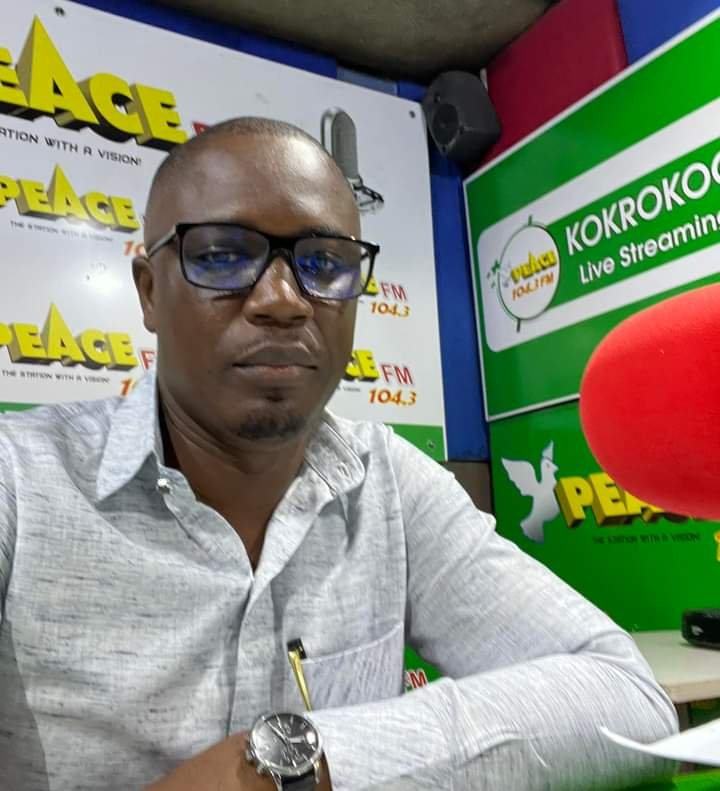
Dr. Frank Bannor, Development Economist and Head of Research at the Danquah Institute
By Bright Philip Donkor
Dr. Frank Bannor, Development Economist and Head of Research at the Danquah Institute, has praised the Government of Ghana, under the leadership of President Akufo-Addo, for its robust efforts to curb illegal mining (galamsey) since 2017.
In an interview on Peace FM’s Kokokrokoo Show on Tuesday, October 8, 2024, Dr. Bannor cited introducing key policies to transition illegal miners into skilled and sustainable employment.
According to Dr. Bannor, the National Alternative Employment and Livelihood Programme (NAELP), specifically for illegal miners, launched by the government in October 2021, stood as a cornerstone initiative in this effort. “The NAELP was developed in response to the surge of displaced illegal miners and victims affected by the government’s campaign to sanitize the mining sector,” he explained.
Clear mission
Dr. Bannor noted that the NAELP, under the Ministry of Lands and Natural Resources, had a clear mission: to create alternative livelihoods that could sustainably improve the economic circumstances of illegal miners over five years. He added that This program was part of a broader strategy to remove illegal miners from the industry and offer them structured pathways into skilled work, thus reducing the incentive to return to galamsey activities.
“The overarching goal is to design and implement programs that provide new opportunities for those whose livelihoods have been affected by the government’s operations against illegal mining,” Dr. Bannor stressed.
Dr. Bannor pointed to significant challenges hindering the full eradication of galamsey, particularly greed and irresponsibility. He lamented that some illegal miners, driven by short-term gains, are destroying cocoa farms, which serve as crucial sources of income for local communities and a means to provide essential infrastructure such as roads, hospitals, and schools.
Land tenure system
Dr. Bannor also brought attention to a critical issue he believes contributes to the persistence of illegal mining—the land tenure system in Ghana. “The land tenure system in Ghana is taken for granted,” he asserted. “Any country where land is not primarily in the hands of its government has a problem.”
He explained that the Minerals and Mining Act, 2006 (Act 703) governs the exploration, extraction, and management of minerals in Ghana. Section 1 of the Act grants the ownership of all minerals in their natural state to the Republic of Ghana, with the President entrusted to manage them on behalf of the people. However, traditional rulers, as custodians of 80% of the country’s “customary land,” hold significant authority over land allocation for development projects, including mining concessions.
“Traditional rulers play a pivotal role in the negotiation and allocation of land for development purposes. Their involvement is crucial in ensuring that the interests of their communities are safeguarded. But the current system has its drawbacks. Even if a mining license is granted, one cannot begin operations without securing local approval, and this can complicate the process.”
Role of traditional leaders
He stressed that while traditional rulers play an important role in protecting community interests, the land tenure system poses a significant challenge for the government in managing the country’s natural resources. “When the government wants to address issues of land, it has to be cautious, as political repercussions could emerge, particularly during elections,” he warned.
Dr. Bannor further touched on the political dimensions of the galamsey crisis, recalling President Nana Akufo-Addo’s bold declaration in 2020 that he had placed his presidency on the line to fight illegal mining. While the government had rolled out several initiatives, Dr. Bannor pointed out that political opposition has complicated efforts. He accused the opposition National Democratic Congress (NDC) of encouraging illegal miners by promising them the necessary equipment to continue their operations during the same period.




